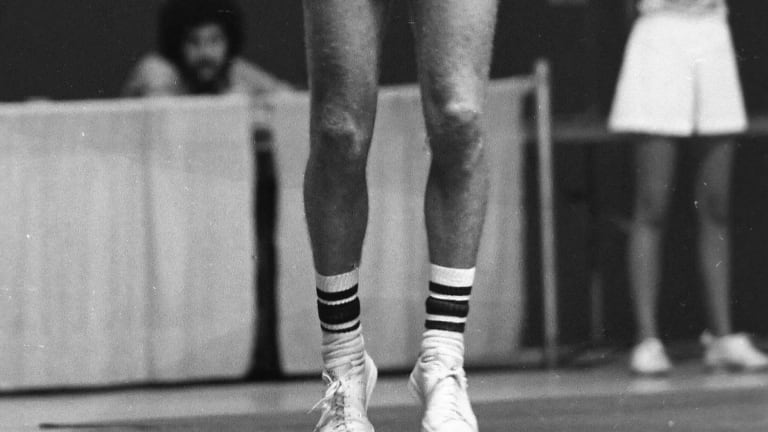A winner of 19 major titles (two in singles, ten in doubles, and seven in mixed), Stolle was as much an asset on the court as off -- stepping in to play several sets for the Freedoms and later the New York Sets when he and King switched teams in 1975.
“I played some of the men’s doubles and mixed doubles with Julie Anthony when we were on the Philadelphia Freedoms. I can remember hitting a forehand -- which was not my best shot -- against Roger Taylor when we played against their team, and that was the point that decided that match there.”
Playing alongside King and Stolle for the Sets was Virginia Wade, the last British woman to claim a Wimbledon singles trophy. Together, the three were part a championship-winning season in 1976, one that earned Stolle his first Coach of the Year distinction, and King her first Play-off MVP Award.
“We all improved as players,” Wade admitted when reminiscing on her Mylan WTT memories. “We had magnificent coaching and practice, and although it was very hard work -- because you were doing a lot of travelling and moving from one place to the other -- but it was so stimulating and so exciting when you were on the court.
“It was wonderful to have a team around you that supported you.”
The New York Sets played some of their most important matches in front of an enthusiastic Madison Square Garden crowd, an experience Stolle still remembers.
“It was magic. You can imagine going in and having 14,000 people in MSG all watching tennis. That happened a couple of times during Team Tennis, and we hope we can get it back there again.”
Wade agreed, noting that it was an amazing time to play and be a fan of this sport that was being played in this new and exciting format.
“It was the mid-70s, and I don’t think any of the current players have any idea how popular tennis was at the time. And we’d have a full house, the whole time. So of course, the atmosphere was so stimulating, and electric, and fun to play in something like that.”
Stolle was a “strict coach” in Wade’s estimation, but he knew how to keep the Brit fired up during tough matches in front of partisan crowds.
“I got mad one time -- because the crowd used to get into it, and some guy was making some comments. Well, he had a thing of popcorn, and I took my racquet and I smacked the popcorn all over the court!”
A Fed Cup stalwart, Wade truly thrived under Mylan WTT’s team atmosphere, something Stolle immediately recognized as an important tool in developing a young player.
“When we had the kids with Team Tennis, we were in the gym, working out three to four hours a day, and they learned a lot. These were kids that were already on the Tour, but they got better from the experience.”
Looking back, King takes it one step further, believing Mylan WTT can be crucial to a player’s growth, not only as an athlete, but also as a person.
“It has made a difference in their lives, because they learned to be team players, and not just individuals,” King said. “You can see the bonds and relationships that they’ve had because of World Team Tennis; they’re much deeper than when you win singles and just celebrate with you friends and family; it’s not the same.
“We are the team in tennis.”
